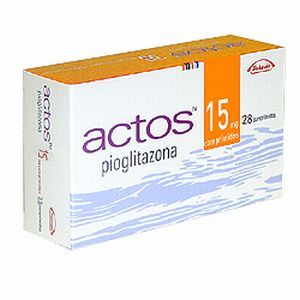 Native Americans Diagnosed with Type 2 Diabetes at High Rates
Native Americans Diagnosed with Type 2 Diabetes at High RatesWhile the data are staggering, what lies within the data is even more alarming—and unfortunately beneath the radar of most mainstream mass media. One of the populations most devastatingly affected by type 2 diabetes in particular are American Indians.
According to the US Department of Health and Human Services, Indian Health Service (IHS), when comparing the mortality rates for the American Indian and Alaska Natives (AI/AN) in the IHS Service Area during 2004–2006 for diabetes, with those of All Races in the US in 2005, the AI/AN population had a mortality rate of 68.1 per 100,000 population, while All Races in the US had a mortality rate per 100,000 of 24.6—an almost three-fold disparity in mortality between the two groups.
Additionally, diabetes ranks in the top five leading causes of death for AI/AN populations—along with heart disease, malignant neoplasm (cancer), unintentional injuries and cerebrovascular disease (stroke).
The high incidence rate of diabetes type 2 within the Native American population contributes to a life expectancy that is 5.2 years less than the general US population (all races); based on 2003–2005 rates, the average life expectancy for the AI/AN population was 72.6 years compared to 77.8 years for the general US population.
High Rate of Diabetes Equating Higher Incidence of Actos Side Effects?
Given the data, and that the recommended algorithm for treatment of type 2 diabetes and glucose control1 includes Metformin (e.g., Januvia) and Thiazolidinediones—aka Actos2—it's a cause for concern. After all, when there is such disparity in the rate of diabetes incidence among AI/AN, it stands to reason that there would also be a disparate occurrence of Actos side effects (or Avandia side effects). (Read more about Actos vs Avandia here.)
Avandia had been the diabetes drug in the spotlight during the last year over concerns about harmful side effects, including an increase in risk of heart attack. However, since Avandia—which is due to come off retail pharmacy shelves this month—has had restrictions placed on its use as a result of the FDA announcement back in May 2011, the focus has shifted to Actos and the potential for harmful Actos side effects that are similar to those of Avandia.
Following the FDA announcement restricting Avandia use, some patients were switched to Actos. As attorney J. Benton Stewart indicated in an interview with LawyersandSettlements.com at the time, "Many people who began taking Avandia were switched to Actos as a less expensive drug. At the time, it was believed that Actos was not as harmful a drug, but over time that has not been proven to be true. The FDA has linked Actos to bladder cancer, which is now a warning on the Actos label."
Actos side effects include liver and cardiovascular issues, as well as an increased risk of fractures and an increased risk for bladder cancer.
Limited Health Care Access, Limited Awareness of Actos Side Effects
In the midst of all this, are American Indians—who according to the IHS "have long experienced lower health status when compared with other Americans. Lower life expectancy and the disproportionate disease burden exist perhaps because of inadequate education, disproportionate poverty, discrimination in the delivery of health services, and cultural differences. These are broad quality of life issues rooted in economic adversity and poor social conditions."
A lack of educational resources regarding health care choices—or simply the inability to access the same level of quality health care compared to the general US population—may be putting American Indians at an even greater disadvantage. Having access to prescription diabetes drugs such as Actos is one thing, but access without proper education about potential Actos side effects and how to address them raises the level of risk.
READ MORE Actos LEGAL NEWS
November is not only National Diabetes Month, but also Native American and Alaska Native Heritage Month—with a theme of "Native Youth: Connecting Cultures and Wellness," it's an opportune time to recognize the disparity between the AI/AN and general US populations regarding diabetes diagnoses, as well as to ensure that medical and drug information is available and accessible to all who need it.
1. Source: IHS, from the ADA Clinical Practice Recommendations 2010 Diabetes Care, 2010;33 and Medical Management of Hyperglycemia in Type 2 Diabetes: A Consensus Algorithm for the Initiation and Adjustment of Therapy Diabetes Care 2009;32(1):193–203
2. Actos (Pioglitazone) is not listed on the IHS National Core Formulary.
